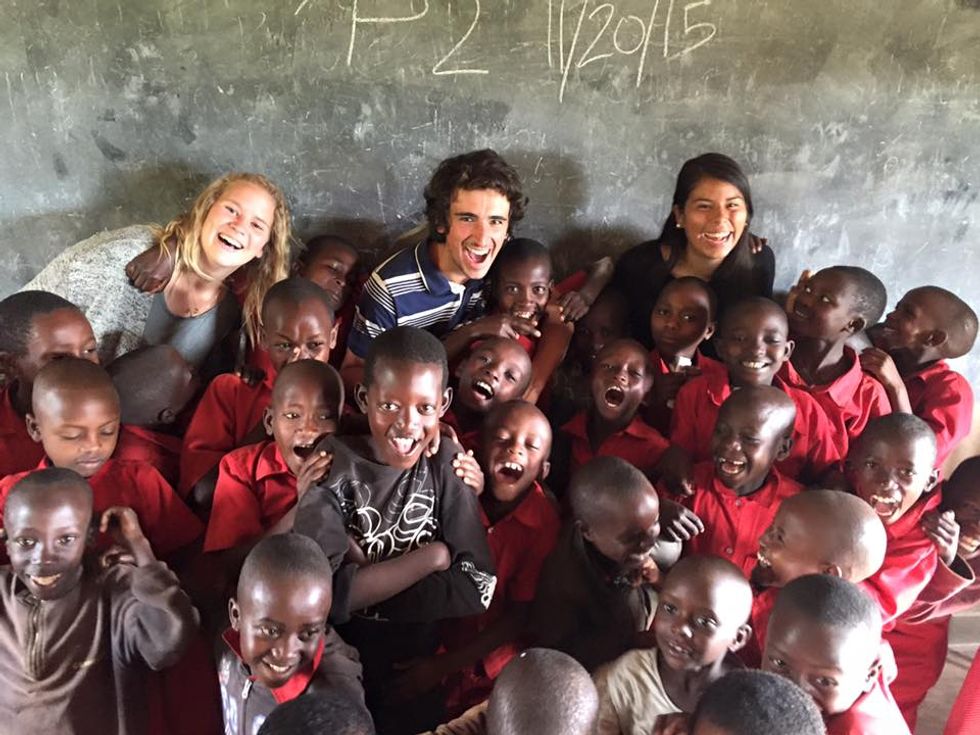I wake up and stretch my legs and arms across my mattress fit with padding, sheets, a duvet, and two throw blankets. I slither out of these layers and dig my feet into the soft carpet, before grabbing my just-washed towel and stepping into the shower. The water’s colder than I predicted—I groan and wait an extra minute for it to warm up.
My strawberries are quickly wilting, so I dump the remaining seven onto my plate and enjoy them with eggs, toast, and bacon. I had time for a bigger breakfast today. I ponder whether I should walk to class, grab the bus, or ask my roommate for a ride.
My roommate drops me off at class a good ten minutes early. I pull my laptop out of my backpack and open a few tabs: Pandora, Facebook, Buzzfeed. I scroll through social media until the start of my class.
I wonder what I should have for lunch. I could grab Qdoba, Origami, or one of the other 10 options offered at Turner dining hall. Or I could go home and make or order something. I decide on Qdoba.
It’s the end of the day and I’m exhausted. I had two classes, worked out, went to the store, finished some assignments, and before I knew it it was time to climb back under my duvet. I blow out my candle, set the thermostat for 73, and unplug my Christmas lights strewn above my bed.
Asifiwe —a little girl in Rwanda— wakes up and stretches her legs and arms careful not to hit one of her brothers or sisters. She jumps up, excited to see the sun has returned and brought the day with it. She grabs the water canteen and begins the mile trek to the aqueduct.
She returns to her home with the water after awhile, greeted by her mother with a fresh banana—breakfast. Asifiwe delights and is now energized for the school day. She wraps her little brother tightly around her with a blanket and heads back out for class, which is thankfully just around the corner.
After a long day of learning, Asifiwe finally gets to play. Her and the other kids play a handful of games: they play soccer with a ball made out of various debris, they roll discarded tires with sticks, and finish off the day playing Miss Mary Mac—a classic childhood game.
She is refueled at dinner with eggs her mother gathered from the chicken’s nest, but for only an hour or so. Thankfully the sun decides it’s bedtime too and they both drift off without another pause or sign.
Asifiwe is one of my students. I taught her, as well as hundreds of other kids, ESL for five weeks in Rwanda. Moving to such a different (for lack of a better word) place was difficult, but I quickly adapted to the lifestyle. I became used to waking with the sun and sleeping with the moon, to surviving without the convenience and entertainment of social media. I quickly learned to appreciate the food I was given, rather than seek something else or something better. I became thankful for each glass of water, for the clothes on my back. The people of Africa that I was so lucky to meet may not have the same luxuries as us, but that’s not necessarily a bad thing. They may not have piercing hot water, or the latest video game console. They may not have a car to drive to work, or a television in their living room. But they’re just fine, even better off, with their own customs and their own routines. I went to Africa to help them improve their English and to rebuild their schools—feats they were already working toward accomplishing. I listened to what they needed and I helped them obtain those needs. I did not enter their communities and tell them how to live.
We must appreciate our lives, as well as respect the lifestyles of others. I wake up every morning and look at my white walls covered in memorabilia and decorations, sun streaming in through the cracks in the blinds, and I think of Asifiwe. Her waking up next to her brothers and sisters, mother and father. I’m thankful: that we both wake up and that we both live loving lives.

















